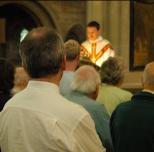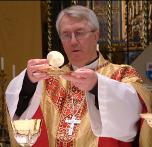|
See also:
More details:
|

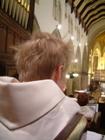
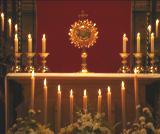

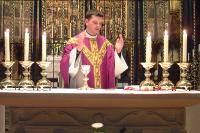
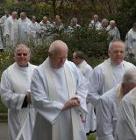
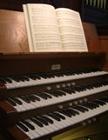
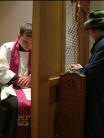
|
What is Mass? |
|
Mass is the ‘source and summit’ of Catholic life, the most important part of Catholic practice.
During Mass, bread and wine are offered on the altar by a priest. They are transformed by the Holy Spirit to become the Body and Blood of Christ. In this way, Our Lord is truly present with His people.
The Mass makes present the benefits of the sacrifice that Christ made on the Cross. He died for us, so that we might be forgiven. The words He spoke are repeated at the altar: “This is my Body, which will be given up for you”.
Before the bread and wine are brought forward there are readings from Scripture (the Bible), often accompanied by a homily (sermon) in which the priest may explain an aspect of the readings, or some other aspect of our faith.
At the end of Mass, there is a ‘dismissal’, when people are sent out to take Christ to others. In Latin, the phrase used is ‘Ite, missa est’ - a phrase from which the word ‘Mass’ is derived.
Language Mass may be celebrated in any language. At the Cathedral, Mass is celebrated in English (unless otherwise advertised), often with some sung parts in Latin.
Extraordinary Form (Tridentine) Mass is celebrated in the extraordinary form (Tridentine Rite) on the fourth Sunday of the month at 12:15pm, with occasional exceptions. Dates are given in the Cathedral diary. The Mass is usually a Missa Cantata.
Non-Catholics Those who are not in full communion with the Roman Catholic Church are welcome to attend Mass, but Holy Communion is received by Roman Catholics only. For more details and a brief explanation, click here. |
